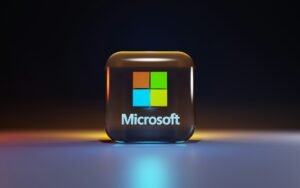Microsoft Senior Power Hardware Engineer

About Course
Microsoft Senior Power Hardware Engineer Interview Questions
This comprehensive course is designed to help candidates succeed in the rigorous Microsoft Senior Power Hardware Engineer interview process. Whether you’re targeting roles in Azure infrastructure, Surface device design, or datacenter power systems, this module delivers the real-world depth and strategic thinking required to pass each interview stage. The Microsoft Senior Power Hardware Engineer interview questions featured in this course are grounded in real expectations for engineers working on scalable, high-efficiency, and safety-critical power systems.
Microsoft’s hardware engineering teams demand deep understanding of power delivery, thermal efficiency, EMI mitigation, and cross-functional system integration. Senior engineers are expected to make system-level tradeoffs, lead architecture design reviews, and validate performance across voltage domains and environmental extremes. This course delivers 75 focused Microsoft Senior Power Hardware Engineer interview questions modeled on actual Microsoft hardware engineering challenges.
Course Overview
This module contains 75 carefully curated Microsoft Senior Power Hardware Engineer interview questions, each paired with a clear, detailed explanation. Questions span theory, design application, and troubleshooting—mirroring how Microsoft evaluates technical decision-making under practical constraints.
You’ll encounter:
-
Multiple-choice design tradeoff problems
-
True/False system validation checks
-
Fill-in-the-blank performance specs and constraints
-
Open-ended architecture and root-cause challenges
The goal is not just to test your knowledge but to develop system-level reasoning—exactly what the Microsoft Senior Power Hardware Engineer interview evaluates.
Topics Covered in the Module
To align with the scope of Microsoft’s hardware platforms, this course explores a wide range of topics relevant to senior-level power engineers:
Power Delivery Architecture
-
Design of multi-phase voltage regulators for high-performance SoCs
-
Load-step response tuning and loop compensation
-
Sequencing and soft-start design in complex power trees
AC/DC and DC/DC Conversion Design
-
Flyback, buck, and LLC resonant topology trade-offs
-
Designing for efficiency, switching loss, and EMI in power converters
-
Gate driver selection and dead-time optimization for GaN/FET stages
Signal and Power Integrity
-
Impedance profile analysis and decoupling strategy across frequency domains
-
Measuring PDN stability using frequency response analyzers
-
Co-design with SI engineers for optimal placement of bypass capacitors
Thermal Management and Reliability
-
Heatsink and airflow design for power-intensive modules
-
Thermal derating for voltage regulators under full-load conditions
-
Reliability modeling for power FETs and magnetic components
Validation and Debugging
-
Use of electronic load banks and oscilloscopes for transient validation
-
Margin testing and worst-case analysis for line/load variations
-
Root-cause analysis from power failures using logs, schematics, and test data
Compliance and Safety
-
IEC/UL standards for high-voltage AC/DC modules
-
Creepage/clearance rules for international safety certification
-
Fault detection circuits and FET-level short protection
Mass Production and Test
-
Test fixture design for board-level and system-level power tests
-
Developing golden samples and test limits for production QA
-
Working with contract manufacturers to validate power system performance
Why This Course Works
The Microsoft Senior Power Hardware Engineer interview questions in this course have been crafted by engineers who understand Microsoft’s hardware rigor. Each question simulates what you’ll face in onsite design reviews, cross-functional panels, and system debugging interviews. The explanations not only clarify what’s correct but help you communicate trade-offs—key to Microsoft’s collaborative design environment.
You’ll learn to:
-
Justify design choices across current capacity, efficiency, and thermal limits
-
Identify failure modes through structured root-cause thinking
-
Bridge theoretical models with lab-based validation techniques
This is essential preparation for the Microsoft Senior Power Hardware Engineer interview, where expectations go beyond just technical accuracy—they focus on your ability to lead complex design conversations.
Who Should Use This Module
This course is ideal for:
-
Senior power engineers applying to Microsoft’s Surface, Xbox, Azure, or infrastructure hardware teams
-
Mid-level engineers looking to step into system ownership or leadership in power architecture
-
Hardware professionals preparing for roles that require deep expertise in power design and validation
Whether you’re discussing a transient response spec or debugging a failed board at bring-up, these Microsoft Senior Power Hardware Engineer interview questions will give you the confidence and clarity Microsoft expects from its senior engineering talent.
Start Practicing Today
Don’t go into your interview underprepared. Master the 75 real-world Microsoft Senior Power Hardware Engineer interview questions and show Microsoft that you’re ready to lead.
👉 View Microsoft Senior Power Engineer Roles →
👉 Practice Apple Interview Questions →

Course Content
Microsoft Senior Power Hardware Engineer Interview Questions
-
Microsoft Senior Power Hardware Engineer Interview Questions – Easy
-
Microsoft Senior Power Hardware Engineer Interview Questions – Medium
-
Microsoft Senior Power Hardware Engineer Interview Questions – Difficult
-
Microsoft Senior Power Hardware Engineer Interview Questions – Behavioral/Culture Fit